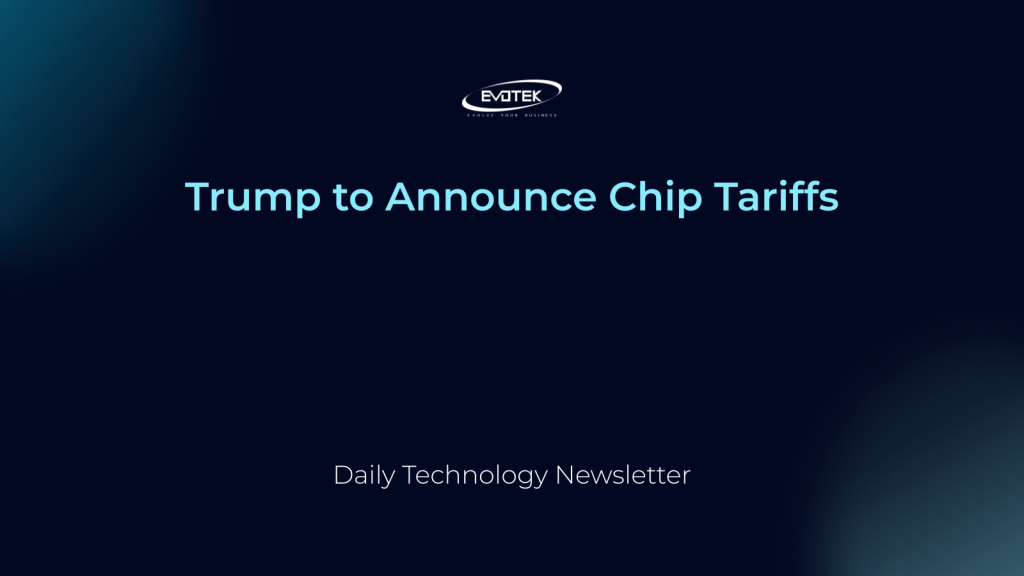President Trump announced Sunday plans to unveil new tariffs on semiconductor chips “over the next week.” He hinted at potential flexibility for select companies.
Why This Matters
Last Friday, the White House suggested smartphones and computers would be exempt from the 125% import levies imposed on China. Apple, which assembles iPhones in China, stood to benefit.
The Latest Developments
The White House previously listed semiconductors as “excepted products” from China import levies. However, Commerce Secretary Howard Lutnick clarified that relief for smartphones and other electronics would only be temporary.
Trump’s Stance
Speaking to reporters aboard Air Force One, Trump stated administration officials would discuss tariffs on products like iPhones and tablets with companies. He emphasized the need for flexibility. When questioned about specific product flexibility, Trump replied, “For some products,” without elaborating.
Earlier on Sunday, Trump refuted claims of a tariff exception, stating his administration is “taking a look at Semiconductors and the WHOLE ELECTRONICS SUPPLY CHAIN.”
He told reporters that the goal is to “uncomplicate it from a lot of other companies, because we want to make our chips and semiconductors and other things in our country.”
Expert Analysis
The initial tariff relief news was welcomed by tech giants like Apple and Nvidia, heavily reliant on Chinese imports. However, Trump’s suggestion that tariff relief may be short-lived introduces uncertainty and could impact the economy.
Related Articles
- Trump’s electronics tariff exemption is temporary, Commerce secretary says
- Phones, computers exempted from Trump’s 125% China tariffs
- Industry braces for chaos with Trump tariffs

 日本語
日本語 한국어
한국어 Tiếng Việt
Tiếng Việt 简体中文
简体中文